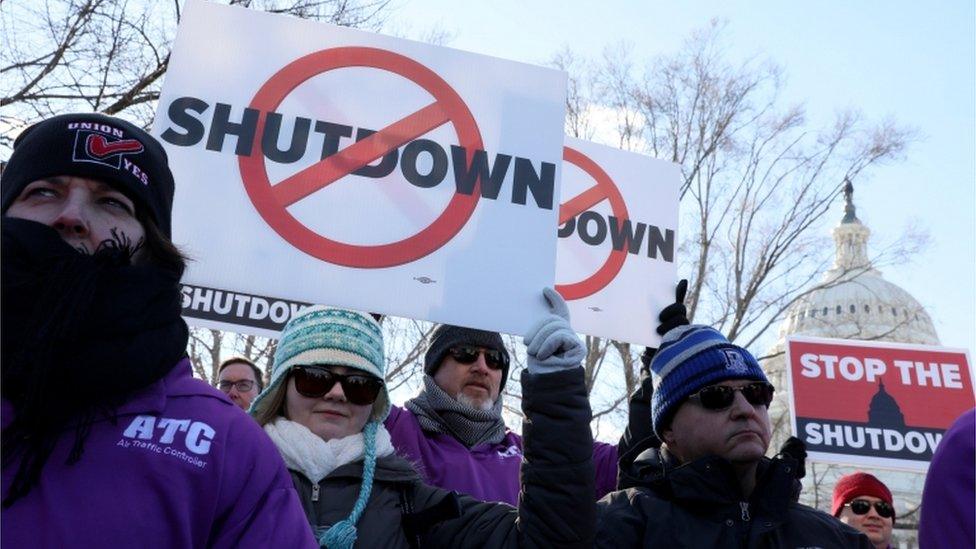US shutdown cost $3bn, says Congressional Budget Office
- Published
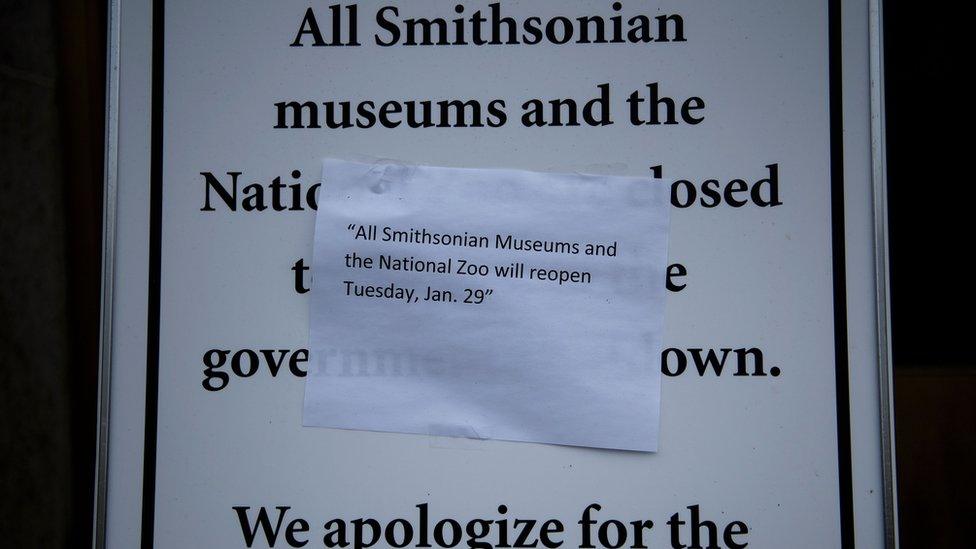
President Donald Trump ended the partial shutdown on Friday
The partial shutdown of the US government is estimated to have cost the US economy $3bn (£2.3bn).
The loss is expected to slash 0.02% from the country's growth in 2019, the Congressional Budget Office (CBO) said, external.
The agency said overall damage amounted to about $11bn, but much of that will be recovered as work resumes.
New trade tariffs could also knock about 0.1% off growth up until 2029, as higher costs prompt lower consumption and investment, it said.
The CBO, the federal agency charged with analysing the economy and budget for Congress, released the estimates on Monday alongside the broader outlook it prepares each year.
The CBO said that prior to the shutdown it expected the US economy to grow by about 2.3% in 2019, slowing from 2018 as a boost from federal spending and 2017 tax cuts fades.
Growth is expected to decelerate further in following years, to an average annual rate of 1.7% through to 2023.
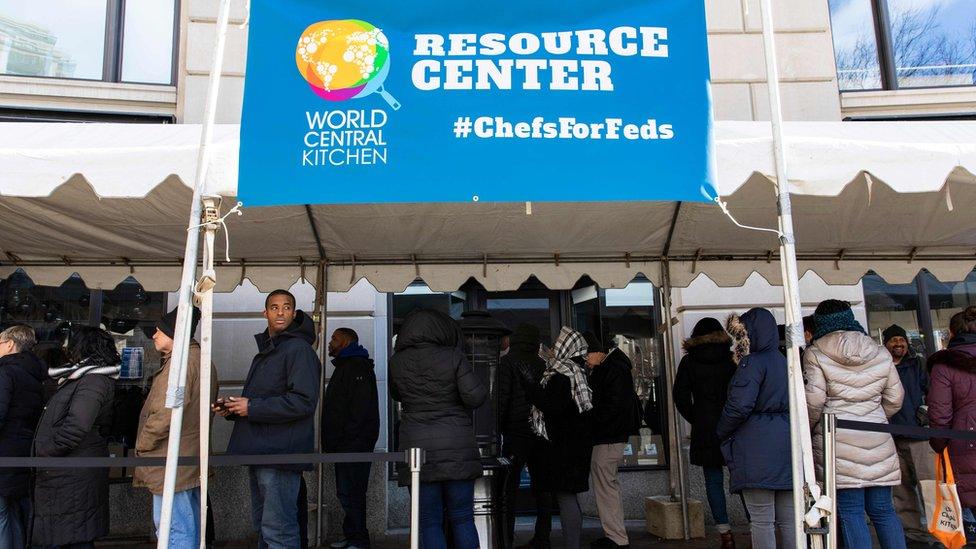
Unpaid federal workers used food banks and emergency kitchens to survive the shutdown
Shutdown details
The shutdown, the longest in US history, was triggered by disagreement over President Donald Trump's demand that Congress include $5.7bn to build a wall along the Mexican border in a new funding bill.
The stand-off forced about 800,000 federal workers to temporarily go without pay and prompted cutbacks in most major departments, including the State Department, Treasury Department and Department of Homeland Security.
US President Donald Trump ended the impasse on Friday, when he agreed to back a deal to temporarily fund the government until 15 February.
However, he has since said that he is sceptical a deal on border security will be reached before funding expires again.
White House economic advisor Larry Kudlow also pushed back against the CBO report, saying the agency is regularly too pessimistic.
"I'm not here to rail on CBO," he said at a press conference on Monday. But, he added, "they have a different point of view."
Funding dysfunction
The CBO said US spending was already an issue, as the government spends significantly more than it takes in.
This problem is expected to intensify in coming years, due in part to the tax cuts approved in 2017, it said.
In 2019 alone, the US deficit is expected to be about $900bn, or 4.2% of total US output. And from 2020-2029, the deficit is expected to average $1.2tr or about 4.4% of GDP each year.
Over the past 50 years, the annual deficit was about 2.9% of GDP, the CBO said.
Barring major policy changes, by 2029 the shortfalls will push US government debt to the highest levels since just after World War II, it said.
- Published28 January 2019
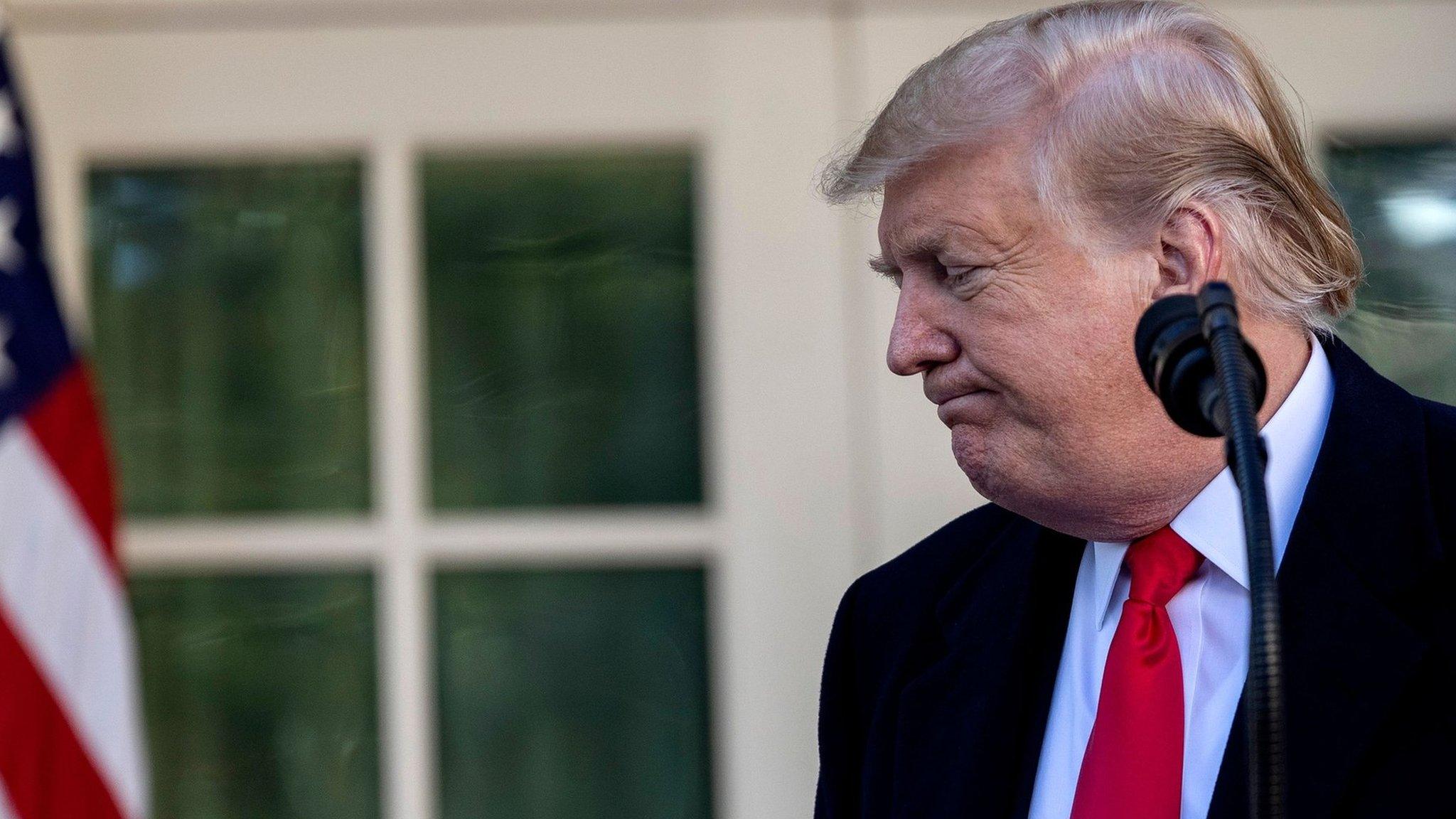
- Published25 January 2019
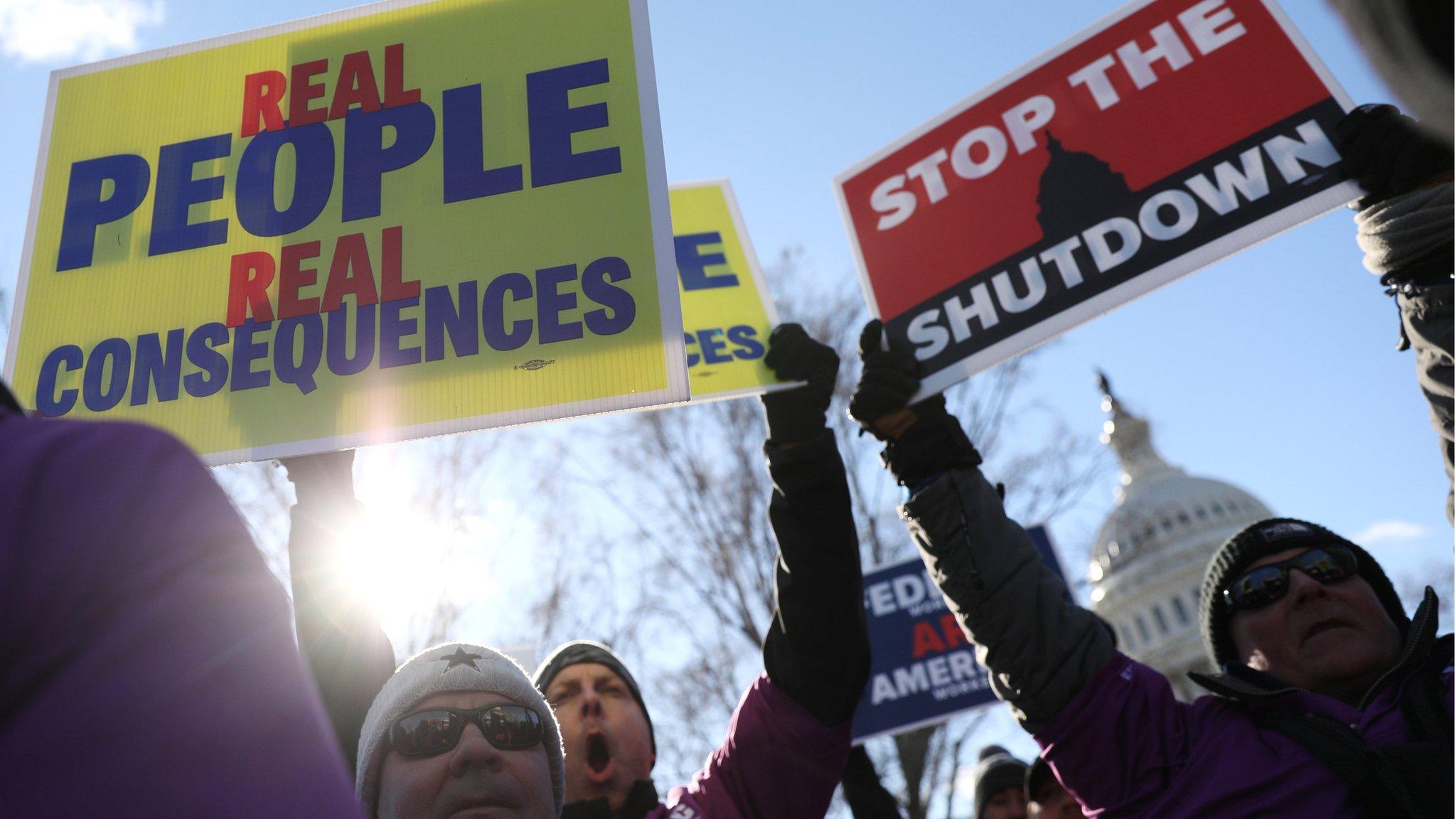
- Published25 January 2019
